Hadhrat Khwaja Abd al-Khaliq al-Ghujdawani qaddas-Allahu sirrahu was born on 22 Sha’ban 435 AH in Ghujdawan near Bukhara (modern-day Uzbekistan).
He passed away on 12 Rabi’ al-Awwal 575 AH in his hometown Ghujdawan, near Bukhara (Uzbekistan), where his tomb is a place of pilgrimage.
Following are the names of his distinguished deputies:
- Khwājā Ahmad Siddīq al-Bukhārī
- Khwājā Ārif Riwgarī
- Khwājā Awliyā Kabīr al-Bukhārī
- Khwājā Sulaymān Germīnī
The next in the Naqshbandī Mujaddidī Tāhirī spiritual golden chain is Khwāja Arif Riwgari.
References
- Hadhrāt al-Quds, by Shaykh Badr ad-Din Sirhindī
- Rashahāt Ain al-Hayāt, by Mawlānā Alī ibn Husain Safī
Photo Gallery
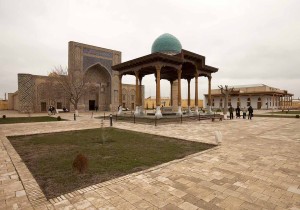
Tomb of Khwaja Abd al-Khaliq Ghujdawani with the Ulugh Beg Madrassa behind
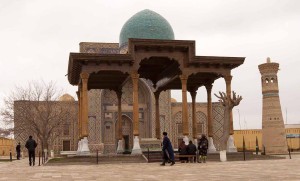
Tomb of Hadhrat Khwaja Ghujdawani
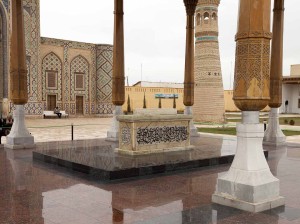
Tomb of Hadhrat Khwaja Ghujdawani
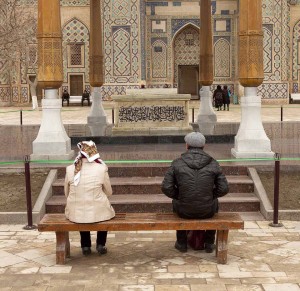
Visiters at the blessed tomb of Hadhrat Khwaja Ghujdawani
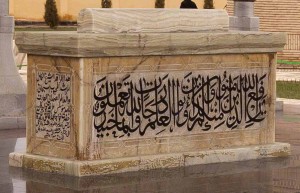
The blessed grave of Hadhrat Khwaja Ghujdawani
Ulugh Beg Madrasah, built by the order of Ulugh Beg (1393 – 1449), grandson of Amir Timur (Tamerlane) in 1433
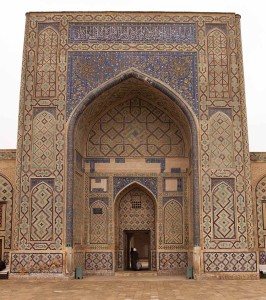
Front of Ulugh Beg Madrasah
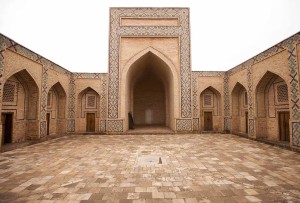
Courtyard of Ulugh Beg Madrasah
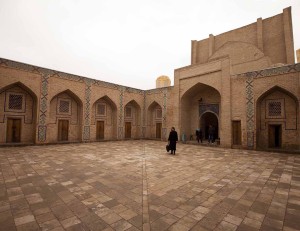
Courtyard of Ulugh Beg Madrasah
